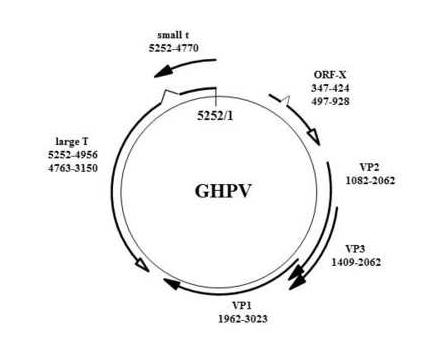
Viral and host determinants of polyomavirus infection in waterfowls
Avian polyomaviruses and goose haemorrhagic polyomavirus (GHPV), opposite to mammalian polyomaviruses, may cause fatal diseases in their immunocompetent hosts. Hemorrhagic nephritis and enteritis of geese (HNEG) was first observed in 1969 in Hungary but the causative agent, GHPV, was described only thirty years later. Although, the disease is well recognizable on the basis of clinical signs and histological results the exact pathomechanisms of the infection are poorly understood. GHPV may replicate in domestic ducks without any signs of disease and these birds could be potential reservoirs of these viruses. One of our main goals is to gain new insights into the viral and host specific determinants of GHPV infection, which may be needed to develop effective vaccines against this high morbidity and mortality disease. Whole genome sequence data are generated to better understand the genomic structure and diversity of viruses circulating in the Hungarian goose and duck flocks. In addition, wild-living birds will be screened for polyomaviruses to see if those species may serve as reservoirs capable of maintaining virus circulation and generate new virus diversity that may pose challenge for vaccine efficacy. We aim at measuring the virus-host interactions in the tissues of experimentally infected geese and ducks to understand host factors determining the evolution of virus infection in homologous and heterologous host species. ORF-X is anticipated to be a virulence factor of GHPV, but its function is still unknown. Thus attempt will be made to clarify its role in the life cycle of GHPV. This research proposal may shed light on new aspects of pathogenesis of HNEG.